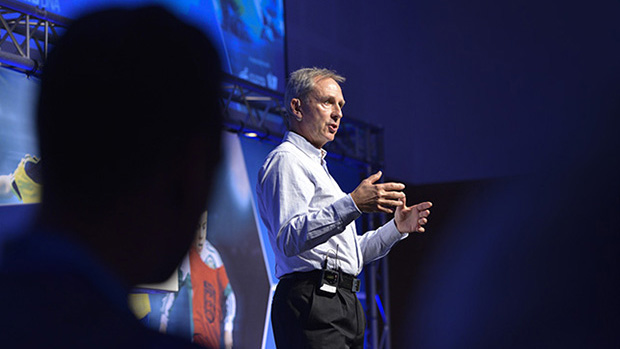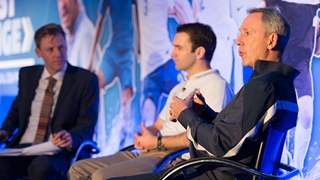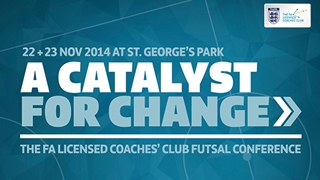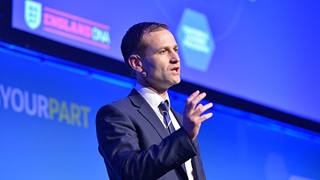
Following on from the success of the first ever youth development phase conference in July, The FA has successfully hosted another inaugural phase-specific conference event - this time dedicated to the 5-11 age-group.
Taking place over two days at St. George’s Park, over 140 professional academy coaches from both the men’s and women’s professional games attended the event, which was based on the theme Develop the Person, Develop the Player.
“The theme was chosen to explore our role as coaches when working with players aged 5-11 and to consider the importance of nurturing and supporting them during the earliest part of their football journey,” explained Pete Sturgess, FA technical lead (5-11) and organiser of the event.
“I am a firm believer that an excellent experience in the Foundation Phase can, for many players, be the springboard for success on many levels.
“And so I wanted the conference to highlight how important these stages of their development are at this age and how using football - which is what a lot of children really love and want to do - we can develop a lot of other skills that will hold them in good stead for the rest of their lives.”
The theme was delivered by a host of expert speakers whose backgrounds ranged from coaching football to academic study and research into the development of players aged 5-11.
“We had Professor Chris Pascal who has worked with the government on issues related to early years development and she looked at those pre-academy years, so 5-8, and what’s happening at the child’s end and how that impacts on us as football coaches.
“We also had Sue Cowley, who looked at the creative process and how as coaches if we want creative players there are certain things we have to be wary and mindful of in order to increase and enhance those creative returns.
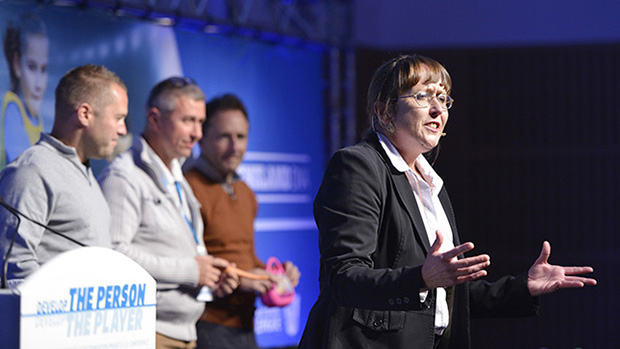
Sue Cowley, who is a renowned author of over 25 books on education, delivered an interactive presentation on 'Understanding creativity - the capability of our young footballers'
“Then we had really good examples from our own FA Skills team, both practical and theory, and also from Sheffield United, who have got a really innovative programme.
“And then we had our own Dan Micciche, who built on the creativity theme and Marc Canham who showed how the Premier League are really leading the way in providing lots of variety of formats for the young players in our elite academies.”
Like the Youth Development Conference, this event was hosted specifically for academy coaches, managers and technical directors working in the professional game.
Asked what he hoped the benefits would be for the game in focusing on this particular area of the coaching community, Sturgess pointed to its value in supporting coaches who are developing expertise working with 5-11 players in elite settings.
“I think it is to enhance and really consolidate the key messages on the Advanced Youth Award and to really raise the profile of those coaches who are now becoming experts with the youngest players,” he explained.
“In the past the kudos always went to the coaches who worked higher up the food chain, but that is changing.
“I don't think it is changing financially, but it is certainly changing in terms of people recognising the importance of the work that can be done and the development that can take place in the foundation phase.”
But while this event was designed specifically for elite coaches, Sturgess admitted he would be keen to see it opened up it to all coaches working with players in this phase.
“Over time, I would love to see this becoming a joint event for both grassroots and professional game because there is a lot of cross-pollination that can go on when the two audiences are mixed in that way.
“And I want to make a massive investment in the grassroots coaches because they tend to get the young players first and if we can improve the work and the knowledge of what they are doing then the players are going to be in a different place if and when they pro clubs pick them up.”




